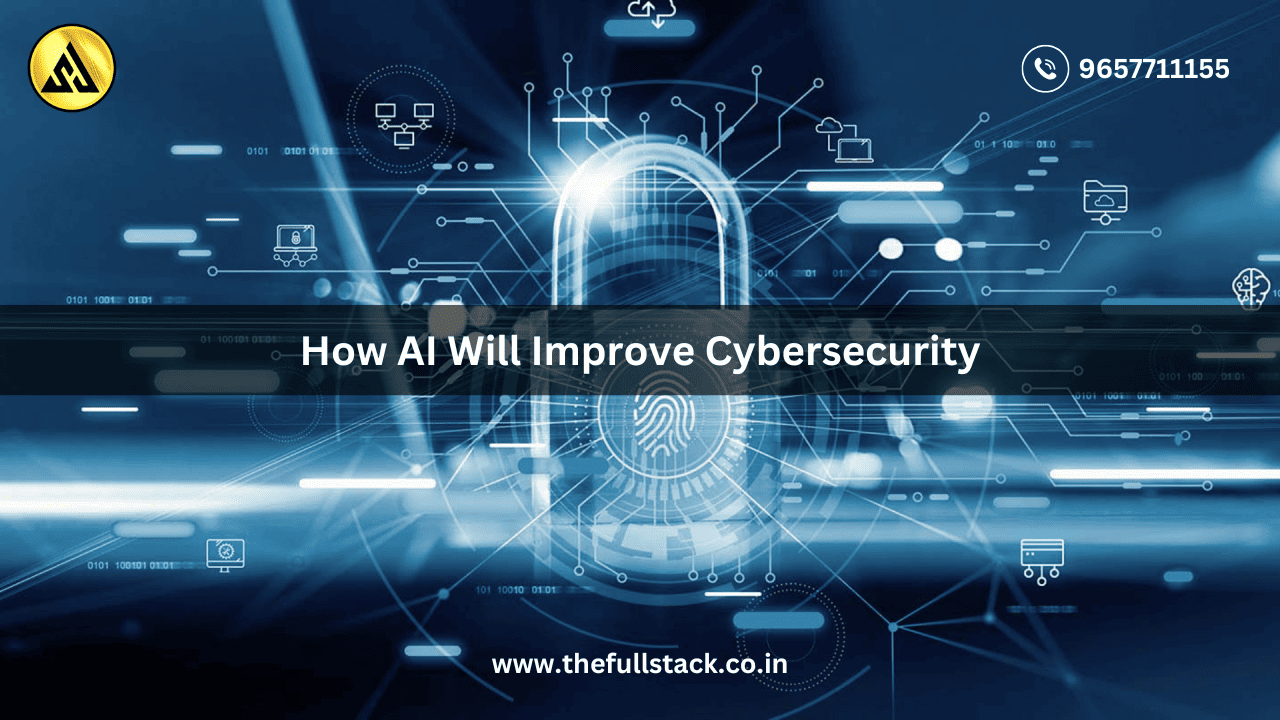
How AI Will Improve Cybersecurity
In the current digital environment, cybersecurity is more crucial than ever. The necessity for efficient security solutions has increased dramatically as a result of the ongoing exposure of both persons and enterprises to possible cyberthreats. The good news is that cybersecurity is about to undergo a revolution thanks to artificial intelligence (AI), which will make it more intelligent, quicker, and proactive.
Don’t worry if you’ve never heard of this before! This article will explain the fundamentals of how artificial intelligence (AI) is changing cybersecurity, what trends to look out for, and how you can begin using AI tools to safeguard your online reputation. Whether you work for a firm or are just trying to keep secure online, this easy-to-follow advice can help!
The Basics of AI and Cybersecurity
In essence, artificial intelligence is the capacity of machines to carry out operations that normally call for human intelligence. This involves making judgments, identifying patterns, and drawing lessons from past experiences. AI in cybersecurity analyzes enormous volumes of data to spot possible risks instantly and react far more quickly than conventional techniques.
AI is able to identify patterns, flag anomalies, and even anticipate possible assaults before they occur, eliminating the need for manual monitoring or pre-programmed rules. To put it another way, AI makes cybersecurity smarter by allowing systems to continuously enhance their defensive capabilities and learn from previous instances.
Key Concepts You Should Know
1. Machine Learning (ML): A subset of AI, ML allows systems to learn from data and improve their performance without human intervention. In cybersecurity, ML models can detect unusual network activity and spot emerging threats faster than traditional methods.
2. Threat Intelligence: AI systems can gather and analyze data from various sources to understand global threat patterns. This helps businesses stay ahead of cybercriminals by preparing for known and unknown threats.
3. Behavioral Analytics: AI can study user behavior to identify any deviations from the norm. If a user suddenly accesses sensitive data at odd hours, the system can trigger an alert or even block the access until it’s verified. This reduces the chances of insider threats and account takeovers.
How AI Improves Cybersecurity: Real-World Examples

Now, let’s look at some practical examples of how AI is already improving cybersecurity:
1. Real-Time Threat Detection: Imagine you’re browsing the web and unknowingly click on a malicious link. Traditional security systems might only catch it later. However, an AI-powered system can analyze this activity in real-time, instantly detecting the threat and neutralizing it before any damage occurs.
2. Automated Incident Response: AI systems can automate responses to common threats, reducing the time between detection and action. For example, if AI detects a brute force attack, it can automatically block the malicious IP addresses involved, saving time and resources.
3. Predictive Security: AI doesn’t just react to threats—it predicts them. By analyzing historical data, AI systems can forecast where and when cyberattacks are likely to occur, enabling organizations to implement preventive measures.
Current Market Trends in AI and Cybersecurity
AI integration in cybersecurity is the way of the future, not only a fad. The global market for AI cybersecurity is anticipated to expand dramatically over the coming years, per recent reports. In order to counteract the surge in cyberattacks, particularly ransomware, phishing, and data breaches, businesses are progressively implementing AI-powered security solutions.
Here are some key trends to keep an eye on:
- AI-Powered Threat Hunting: Companies are using AI to actively search for threats across their networks rather than waiting for them to appear.
- Cloud Security: As more businesses move to the cloud, AI is being used to monitor cloud environments for suspicious activity.
- AI-Driven Authentication: Biometric systems, such as facial recognition or fingerprint scanning, are being enhanced by AI to ensure secure and convenient user authentication.
Practical Tips to Get Started
Now that you understand the basics, how can you start incorporating AI into your cybersecurity strategy? Here are a few actionable steps:
1. Start with AI-Based Antivirus Software: Choose an antivirus solution that leverages AI for real-time threat detection. This can significantly improve your system’s ability to block new and evolving threats.
2. Explore Behavior Analytics Tools: Consider tools that analyze user behavior and help identify anomalies. This is especially important for businesses with large teams where insider threats are a concern.
3. Invest in AI-Powered Security Platforms: If you’re a company employee or an IT professional, explore AI-powered security platforms that can automate incident response, monitor network traffic, and provide threat intelligence.
4. Stay Informed About Emerging AI Trends: The AI and cybersecurity landscape is evolving rapidly. Stay updated on the latest trends and best practices to ensure your systems are always ahead of the curve.
Conclusion: Take the First Step Toward Smarter Cybersecurity
AI is revolutionizing cybersecurity by making it more intelligent, proactive, and efficient. Whether you’re a business owner, employee, or just someone who values their privacy, the first step to protecting your online presence as a newbie is to understand how AI may improve your digital safety.
Are you prepared to learn more about cybersecurity and AI? Learn more about safeguarding your company and yourself from online threats by exploring our website’s advanced resources and courses.
you may be interested in this blog here:-
Advanced OOP Concepts in SAP ABAP A Comprehensive Guide
Salesforce Developer Salary in India An In-Depth Analysis


Leave a Reply